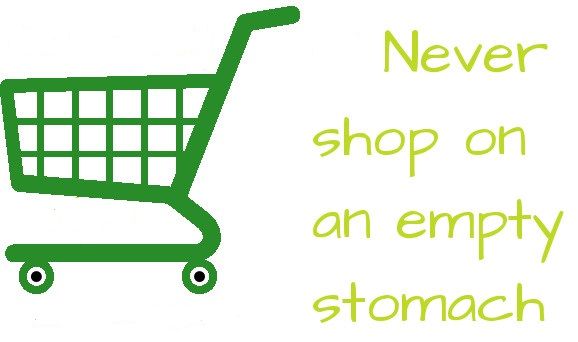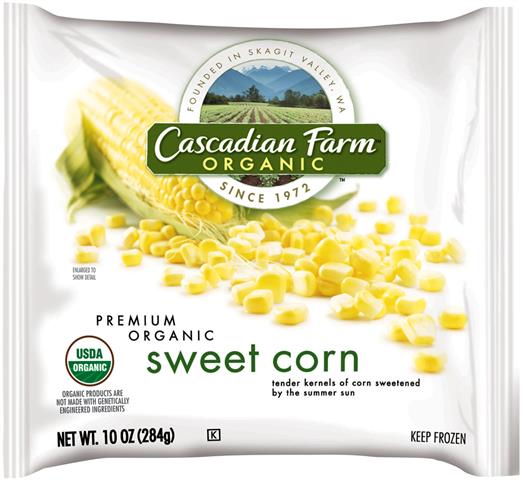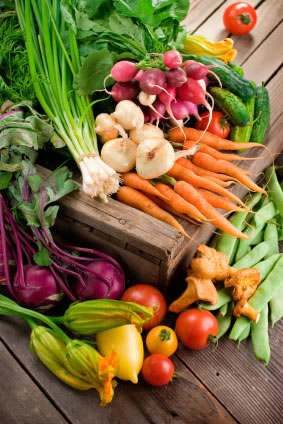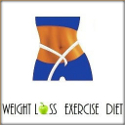-
Supermarket Shopping Guide: 5 Heart-Healthy Tips
Saturday, April 13th, 2024by Dr. Janet Brill, Registered Dietitian and Cardiovascular Nutritionist
 Modern life sometimes feels like it’s going non-stop, doesn’t it? We can’t be blamed for feeling like we are too busy to worry about counting calories or making proper food choices.
Modern life sometimes feels like it’s going non-stop, doesn’t it? We can’t be blamed for feeling like we are too busy to worry about counting calories or making proper food choices.With so much nutritional information coming at us 24/7, it’s important for your health to figure out what your nutritional priorities should be. Separating the wheat from the chaff when it comes to making healthy food choices is vital in this fast-paced world we live in.
This is particularly wise advice when it comes to making smart choices at the supermarket. The endless onslaught of difficult-to-understand nutritional advice, combined with a myriad of food temptations can make a trip to the supermarket a stressful experience, to say the least.
Here are five fundamental nutrition pointers that can help your family make heart-healthy choices when shopping for food:
1) Plan Ahead: Make A Grocery Shopping List
 It’s important to know ahead of time what you will be cooking for the week. Home cooking based on healthy recipes is the best way to feed your family.
It’s important to know ahead of time what you will be cooking for the week. Home cooking based on healthy recipes is the best way to feed your family. Preparing a weekly menu plan in advance will save you time, money and help you to control your weight in the process. Make sure you stick to the list and don’t buy more than you planned for (exceptions can be made for adding more fruits and vegetables).
2) Don’t Go to the Supermarket Hungry
 Never head for the grocery store on an empty stomach. If you are famished you likely won’t be making the healthiest of nutrition choices. If you are hungry while at the supermarket, try eating some fresh fruit or heading to the juice bar in order to stave off those hunger pangs.
Never head for the grocery store on an empty stomach. If you are famished you likely won’t be making the healthiest of nutrition choices. If you are hungry while at the supermarket, try eating some fresh fruit or heading to the juice bar in order to stave off those hunger pangs.3) Shop the Edges: Make Fresh Food a Priority
 Keep in mind that the perimeter of the store is where the fresh produce, lean meats and poultry, fish and fat-free dairy are located.
Keep in mind that the perimeter of the store is where the fresh produce, lean meats and poultry, fish and fat-free dairy are located. Stay away from the aisles unless you need to buy cereals, pasta, whole grain bread, low-sodium canned beans, low-sodium tomato products, tuna packed in water, nut butters, olive and canola oil, and healthy vinegars.
4) Frozen Foods Can Be Healthy: Choose Wisely
 Frozen fruit and vegetables can be high in nutritional value. The key to finding healthy frozen food is to look for the ‘single ingredient’ type. For example, when you’re buying corn, the ingredient list should say ‘corn’ – nothing more.
Frozen fruit and vegetables can be high in nutritional value. The key to finding healthy frozen food is to look for the ‘single ingredient’ type. For example, when you’re buying corn, the ingredient list should say ‘corn’ – nothing more.5) When In Doubt, Buy Fresh Food
 Fresh food, meaning food that has not been processed, is the best choice for good nutrition. Processed foods are almost always much higher in unhealthy additives such as salt, sugar and ‘bad’ fats.
Fresh food, meaning food that has not been processed, is the best choice for good nutrition. Processed foods are almost always much higher in unhealthy additives such as salt, sugar and ‘bad’ fats.In our modern and fast-paced world, we are overwhelmed with information regarding health, medical research, and the latest fad diets. This can be confusing as we struggle to make heart healthy nutritional choices in our daily lives.
The best advice is that when it comes to nutrition, a ‘back-to-basics’ approach is the most successful strategy for eating well and keeping healthy. Try to eat at home often, and when you go to the supermarket, purchase fresh, wholesome food that does your body good.
(published June 18, 2015)
 Janet Brill, Ph.D., R.D., LDN, is a leading diet, nutrition, and fitness expert specializing in cardiovascular disease prevention. She is the author of Cholesterol Down: 10 Simple Steps to Lower Your Cholesterol in 4 Weeks – Without Prescription Drugs (Three Rivers Press, 2006), and Prevent a Second Heart Attack: 8 foods, 8 Weeks to Reverse Heart Disease (Three Rivers Press, Feb. 2011). To learn more about Dr. Janet, get delicious heart-healthy recipes, or buy her books, please visit DrJanet.com or PreventaSecondHeartAttack.com.
Janet Brill, Ph.D., R.D., LDN, is a leading diet, nutrition, and fitness expert specializing in cardiovascular disease prevention. She is the author of Cholesterol Down: 10 Simple Steps to Lower Your Cholesterol in 4 Weeks – Without Prescription Drugs (Three Rivers Press, 2006), and Prevent a Second Heart Attack: 8 foods, 8 Weeks to Reverse Heart Disease (Three Rivers Press, Feb. 2011). To learn more about Dr. Janet, get delicious heart-healthy recipes, or buy her books, please visit DrJanet.com or PreventaSecondHeartAttack.com.


